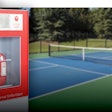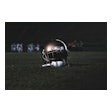Copyright 2017 Spokane Spokesman-Review
Spokesman Review (Spokane, WA)
As summer temperatures rise, people often flock to area pools, lakes and rivers.
For those diving into wave-filled activities, regional recreation and safety leaders also remind residents to think about water safety. Drowning can occur within 30 seconds.
Overall water safety guidelines share common themes. Don't swim alone, have a responsible adult constantly watch children in or near water, wear safety-approved life jackets as a caution in rivers and lakes, and avoid drug and alcohol use if boating and swimming.
"Supervision is No. 1; it's super important to have eyes on children at all times," said Sandy Phillips, technical adviser with a Spokane Regional Health District program that inspects about 260 water recreation facilities for pool safety and water quality.
"If they're poor swimmers, have them in a life jacket; not those floating wings, blow-up toys or noodles, because those aren't sufficient to prevent drowning."
The Centers for Disease Control and Prevention estimates about 10 deaths per day from drowning in the U.S., and of these, two are children 14 and younger. Among those ages 1-14, fatal drowning remains the second-leading cause of unintentional injury-related death, after motor vehicle crashes.
Boating under the influence of drugs or alcohol can quickly turn deadly, added Spokane County Sheriff's Deputy James Ebel, who patrols the county's waterways. The marine enforcement unit was out in force this past weekend under a national awareness campaign on boating under the influence, called Operation Dry Water.
Ebel said "alcohol is the No. 1 contributing factor to boat crashes and recreational boating fatalities."
As another caution, he often repeats this quote while out on patrol: "Life jackets work when you wear them."
For safety at private pools, Phillips urges "layers of protection" to include alarms, safety covers, tall four-sided fences, and gates that are self-closing and self-latching.
When pool time is over, adults should remove toys such as beach balls, adds Trisha McClure, a SRHD environmental health specialist and coordinator of a Spokane drowning prevention coalition.
"We encourage homeowners to remove toys out of the pool water when they're done using them, so it won't entice a child to go after a ball and end up falling in and not able to get out," she said.
"We want to encourage that parents are responsible to watch their children while they're in the water," without turning attention away to chatting, reading a book or texting in case an issue arises, added McClure.
Both Phillips and McClure also strongly encourage formal swim lessons for children, who can start as toddlers if accompanied by a parent or other adult in the water.
Here are more tips from Phillips and McClure:
Next to barriers around pools, private pool owners should make sure they don't have landscaping features or furniture next to fencing that children could use to climb over. A gate latch should be out of reach of a small child.
People at pool sites should have an emergency plan and ready access to safety equipment and cellphone. Equipment can include a reaching pole, also called a shepherd's crook, and throw ring with a rope. Consider newer drain covers that help prevent suction entrapment when someone gets sucked into a drain and trapped underwater.
Life jackets, or personal floatation devices, should fit properly and be U.S. Coast Guard-approved. For a child, lift at the shoulders to make sure they don't drop out of it. Young kids' PFDs should have foam behind the head. The health district's website, under drowning prevention, has a printable 25-percent discount to buy life jackets at Big 5 Sporting Goods stores.
Carl Strong, city of Spokane aquatics supervisor, offers these guidelines:
Around the region's rivers and lakes, stay safe by heeding posted warning signs when boating or playing in the water. Wear personal flotation devices that are Coast Guard-approved and fit well. He said studies have shown the likelihood of children wearing their personal flotation devices is much higher when adults do so as well, so set an example.
Adults should know which kids aren't good swimmers, and the city allows Coast Guard-approved life jackets in pools. If bringing children to the pool, ask other parents about swimming abilities. Talk with lifeguards about anyone who isn't a strong swimmer, and adults can request a lifeguard's "deep-end test" to allow someone to go into deeper water. Follow all warnings, signs, and rules.
Even with lifeguards present and their training to spot and aid a distressed swimmer, adults who bring children should be vigilant also about keeping an eye on kids, Strong said. It's even good to be in the water with them to respond quickly if a need arises.
Sheriff's marine units and state parks list water safety rules, including these:
In Spokane County, children 12 and under must wear a proper life jacket at all times while on boats underway. For each person on the boat who is over age 12, Coast Guard personal flotation devices appropriately sized must be readily accessible in the vessel while it's underway. Anyone being towed such as for water-skiing, or on jet skis or other personal watercraft, must wear a PFD.
In Idaho, if boating on a vessel that is 19 feet in length or less, children 14 years of age and younger must wear approved life jackets while the vessel is underway or under power. For remaining passengers, Idaho law requires that one properly fitting, Coast Guard approved life jacket must be on board for each person on a boat, and life jackets must be readily accessible.
Washington State Parks has this warning: Don't be fooled by warm air temperatures because regional waterways still can be below 60 degrees. If capsizing or falling overboard, it could mean going into dangerously cold waters. Hypothermia isn't as much of a concern as the shock from frigid waters; most drown in the first few minutes of cold-water shock.
Take a boater safety course. Washington state has rules and age requirements for drivers of motor boats regarding the carrying of state boater education cards.
Contact the writer:
(509) 459-5439
Water safety
Resources for water safety
Spokane Regional Health District lists drowning prevention topics on its website, http://www.srhd.org/topics/drowning.asp.
Red Cross lists water safety tips at https://www.redcross.org/.
Read More of Today's AB Headlines
Subscribe to Our Daily E-Newsletter
Terms and Conditions Privacy Policy































